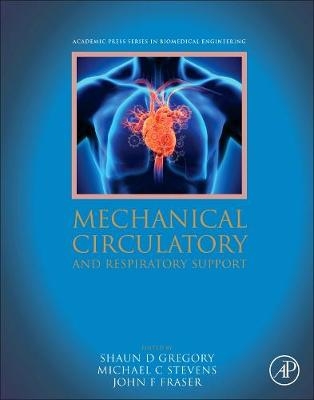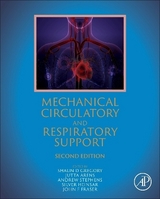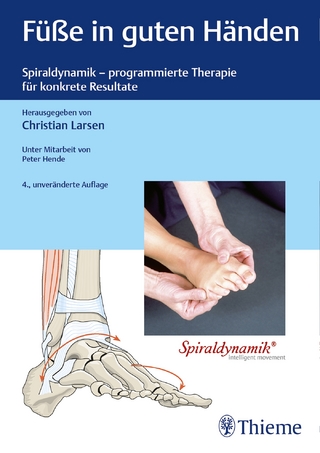
Mechanical Circulatory and Respiratory Support
Academic Press Inc (Verlag)
978-0-12-810491-0 (ISBN)
- Titel erscheint in neuer Auflage
- Artikel merken
This book is written as a useful resource for biomedical engineers and clinicians who are designing new mechanical circulatory or respiratory support devices, while also providing a comprehensive guide of the entire field for those who are already familiar with some areas and want to learn more. Reviews of the most cutting-edge research are provided throughout each chapter, along with guides on how to design new devices and which areas require specific focus for future research and development.
Shaun D. Gregory is a Cardiovascular Engineer with a focus on mechanical circulatory and respiratory support. He brings together multidisciplinary teams of engineering, biomedical science, design, and medicine to develop novel technical solutions for clinically relevant problems. Dr. Gregory is a Professor at the School of Mechanical, Medical, and Process Engineering at Queensland University of Technology (QUT), Director of the QUT Centre for Biomedical Technologies, Co-Director of the Artificial Heart Frontiers Program, Director of the Heart Hackathon international student team competition, and President-Elect of the International Society for Mechanical Circulatory Support. John F. Fraser is a Founder/Director of the Critical Care Research Group, a Director of the ICU at St Andrew’s War Memorial Hospital, and a President of Asia Pacific ELSO and holds five professorships across Australian universities. He is the Inaugural Ambassador for MedTech in his home state of Queensland. With more than 600 publications mainly in the heart and lung arena, he has been awarded numerous international awards for his research and continues to contribute to the education of generations of clinicians, scientists, and engineers. Michael C. Stevens has bachelor and PhD degrees in biomedical engineering and has a special research interest in control of mechanical devices that support the heart. He has worked in cardiovascular research institutes in Australia and in the United States and is now employed by the Graduate School of Biomedical Engineering at the University of New South Wales, the largest biomedical engineering school in the southern hemisphere.
Part 1: Heart Failure and Non-Device Treatment 1. The Descent into Heart and Lung Failure 2. Optimizing the Patient and Timing of the Introduction of Mechanical Circulatory and Extracorporeal Respiratory Support 3. Heart and Lung Transplantation
Part 2: Types of Cardiovascular Devices 4. First Generation Ventricular Assist Devices 5. Second Generation Ventricular Assist Devices 6. Third Generation Ventricular Assist Devices 7. Biventricular Assist Devices 8. Total Artificial Hearts 9. Extracorporeal Membrane Oxygenation 10. Pediatric devices
Part 3: Pump Design 11. Hydraulic Design 12. Motor design 13. Impeller suspension 14. Pulsatile vs Continuous Flow 15. Preclinical Evaluation
Part 4: Implantation and Medical Management 16. Surgical Implantation 17. Complications of Mechanical Circulatory and Respiratory Support 18. Medical Management of the Supported Patient
Part 5: Physiological Interaction Between Devices and Patient 19. Cannula Design 20. Blood-Device Interaction 21. Physiological Control
Part 6: Physical Interface/Interface Between Implantable Device and Clinician/Patient 22. Percutaneous and Transcutaneous Connections 23. Wearable Systems
Part 7: Route to Market (and staying there!) 24. Route to Market 25. Cost effectiveness
Part 8: Summaries 26. The Past, Present and Future
| Erscheinungsdatum | 20.10.2017 |
|---|---|
| Verlagsort | San Diego |
| Sprache | englisch |
| Maße | 191 x 235 mm |
| Gewicht | 1840 g |
| Themenwelt | Medizin / Pharmazie ► Physiotherapie / Ergotherapie ► Orthopädie |
| Technik ► Medizintechnik | |
| ISBN-10 | 0-12-810491-0 / 0128104910 |
| ISBN-13 | 978-0-12-810491-0 / 9780128104910 |
| Zustand | Neuware |
| Informationen gemäß Produktsicherheitsverordnung (GPSR) | |
| Haben Sie eine Frage zum Produkt? |
aus dem Bereich



